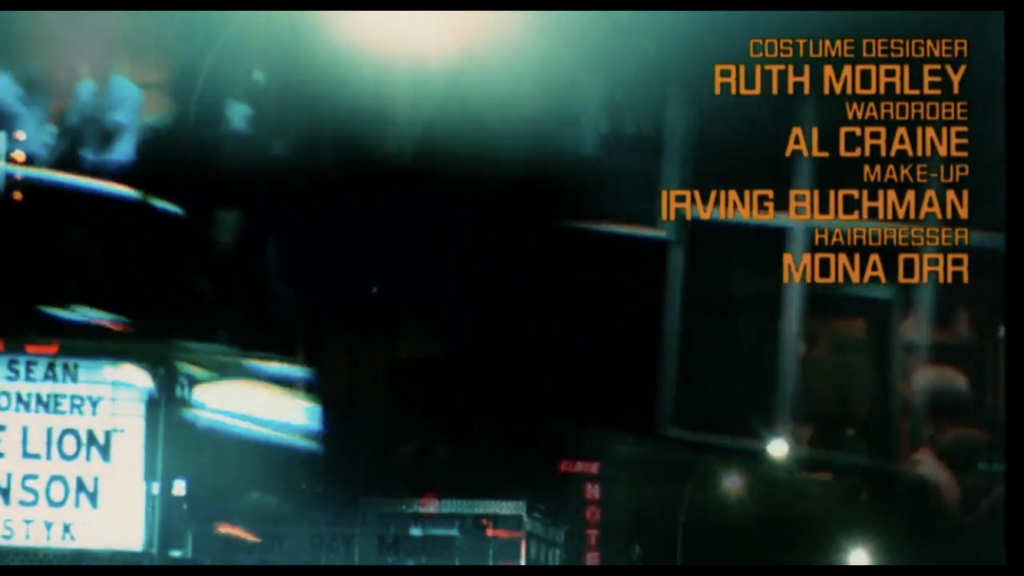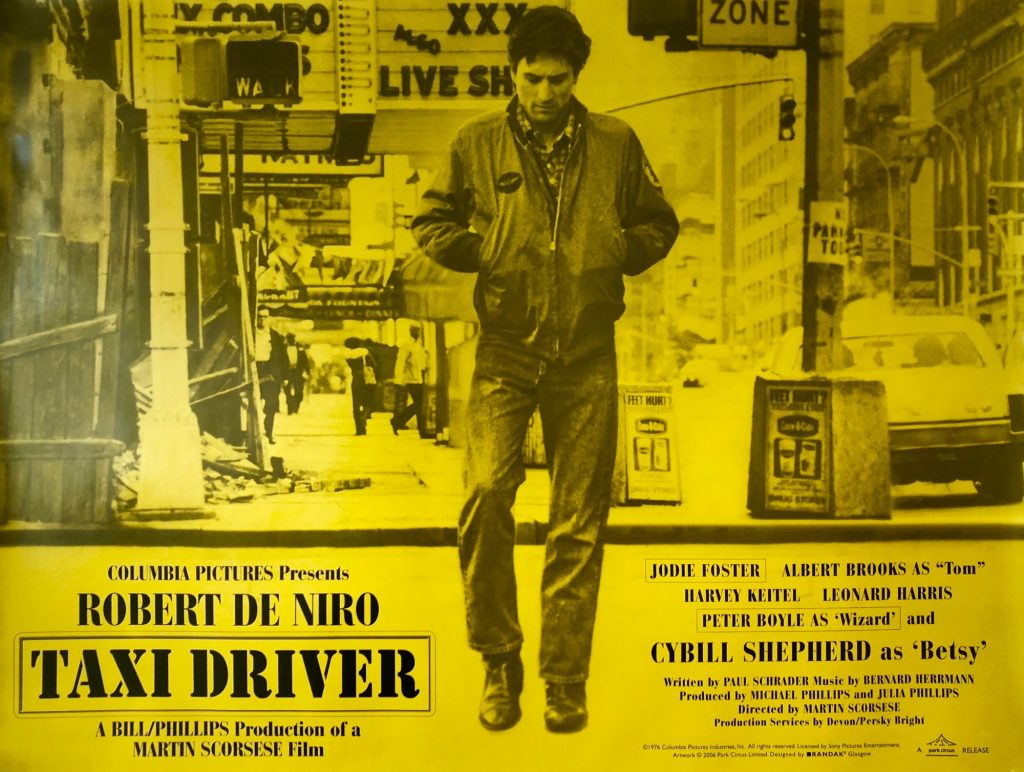

I first saw this film in my late teens, somewhere around the age of 16-18. I must admit, I found it not just shocking, but actually very traumatising, at the time.
All these years later, having just watched Rolling Thunder, I thought I’d revisit Taxi Driver. It turns out both are based on Paul Schrader screenplays. But whereas Schrader was involved throughout and liked the results, when working with Scorsese, the same was not true with Rolling Thunder.
I won’t synopsise the plot of Taxi Driver in any great depth. Most folk will know it chronicles Travis Bickle’s descent into a paranoid vigilante hell. In a NY that is sleazy and trash-ridden, the titular lonely insomniac ‘Nam vet’ unravels, with unrequited love, politics, and post ‘Nam violence all feeding into his brooding insanity.
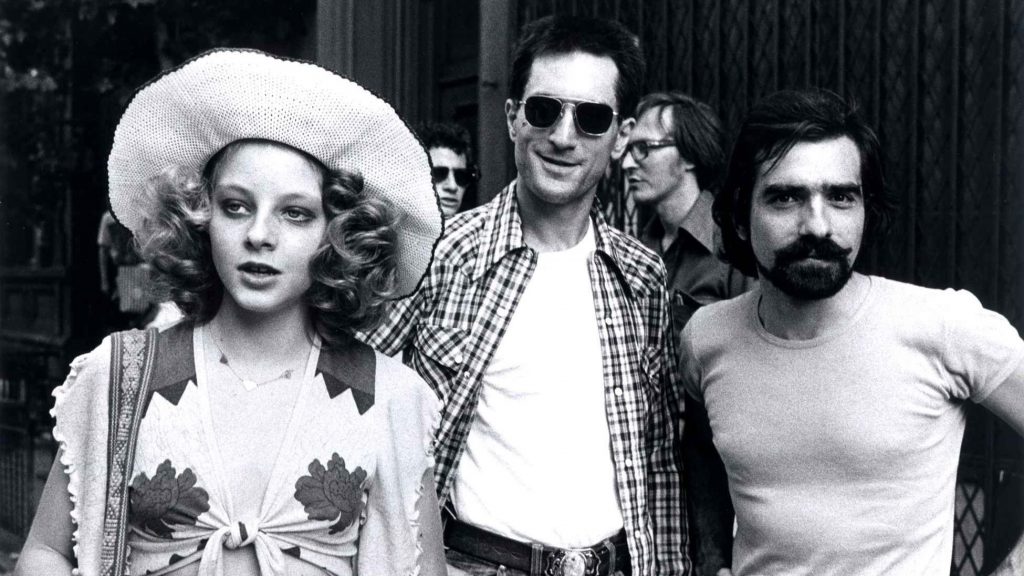
Interestingly, the budget for Taxi Driver was less than that for Rolling Thunder ($1.9 million, as opposed to $2 million). It feels the other way around. TD is much, much, much better filmed, directed, acted, and conceived.
Music plays a very prominent part in Taxi Driver’s power. It was Bernard Herrman’s last soundtrack. He died only a few days after completing it (and the movie is dedicated to him, as a result). Jazz is frequently used to create that sleazy urban vibe, whilst sinister brooding orchestral sounds underpin the more ‘psychological’ stuff.
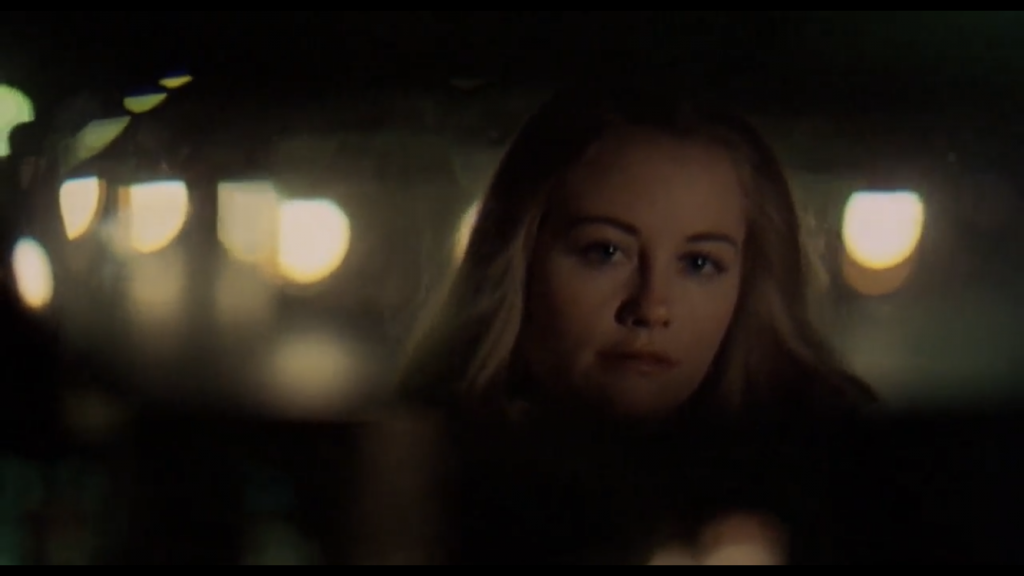
There’s even some contemporary mid ‘70s pop thrown in, with reference to a Kris Kristofferson track (Bickle buys the album for Betsy, the latter played by the enchanting Cybill Shepherd), and the inclusion of Jackson Brown’s song ‘Late For The Sky.’
Whereas Rolling Thunder seems, esp’ by comparison, like quite a sparse empty film, Taxi Driver is packed with layers, nuances and themes. And whilst almost all the characters in RT are wafer thin, and not too believable at that, almost all of those in TD have depth, subtlety, and are – for the most part – very believable.
Taxi Driver tells a pretty grim story, frankly. And leans heavily on such cheering themes as alienation, paranoia and violence. But it has within it many other moments. Such as the brief romance between Betsy and Travis. Which Travis swiftly ruins, by taking her on a first date to… a porno cinema.
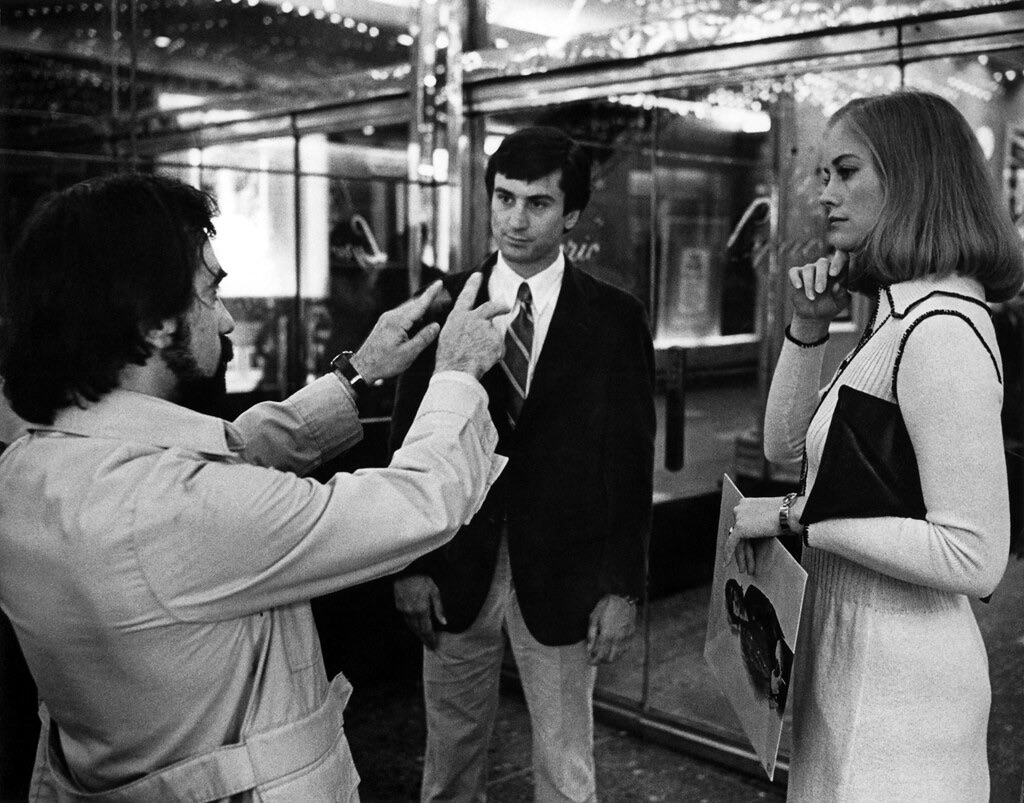
That gets us to one area of the movie that doesn’t quite add up. Travis Bickle is a mess. Taciturn by and large. But also prone to offer unsolicited opinions very forthrightly. Clever enough to journal and make a modified handgun rail; for concealment. But dumb enough to take Betsy to a porno, for a first date!
It’s a strange movie. Very much of its time. The post hippy-era comedown from a few summers of love. It’s horribly dark. But it is also beautiful. Beautifully filmed – the opening and closing credits, for example, are gorgeous – terrifically directed and acted, and with a fantastic score.
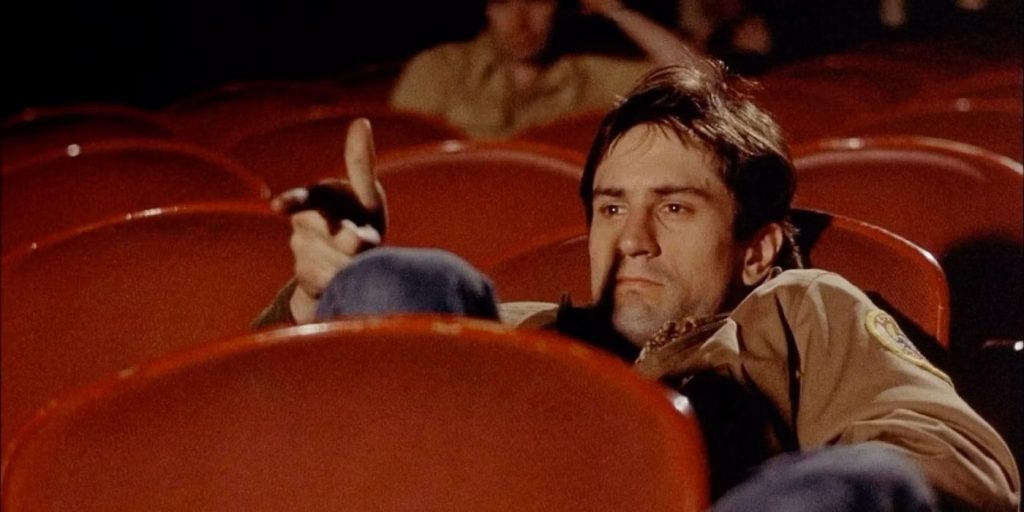
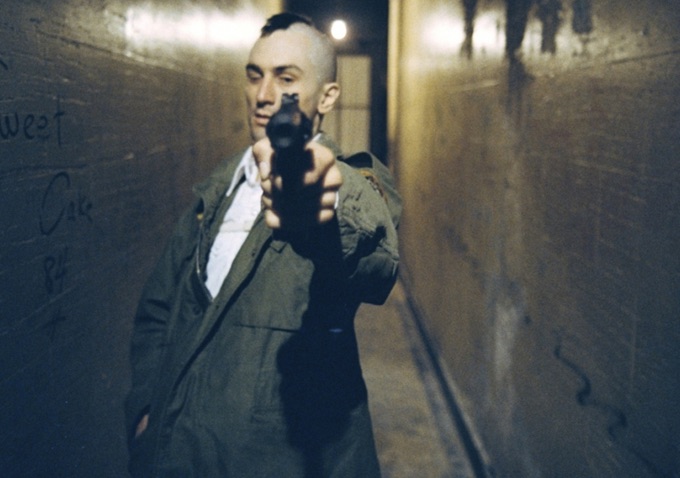
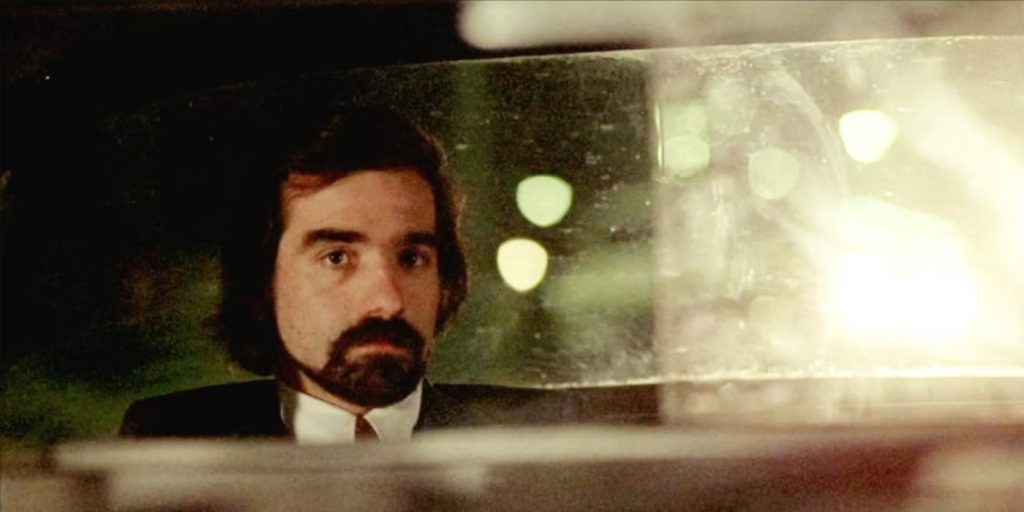
Scorsese is, undoubtedly, brilliant, as a director. He’s fairly horrid as a character, within the movie; one of Bickle’s graveyard shift fares, seething with vengeful and racist anger. And his New York is a squalid hateful place.
But his skills as a director are sublime. The attention to detail is stunning. Witness the split second moment during the end credits, when a momentary glitch in the smooth shot/soundtrack signifies Bickle’s unsettling volitility.
And the God’s eye view of the bloody crime scene in the brothel? That’s clearly inspired by scene of crime photography. And shows both the breadth of Scorsese’s inspirations, and how he used such ideas creatively.
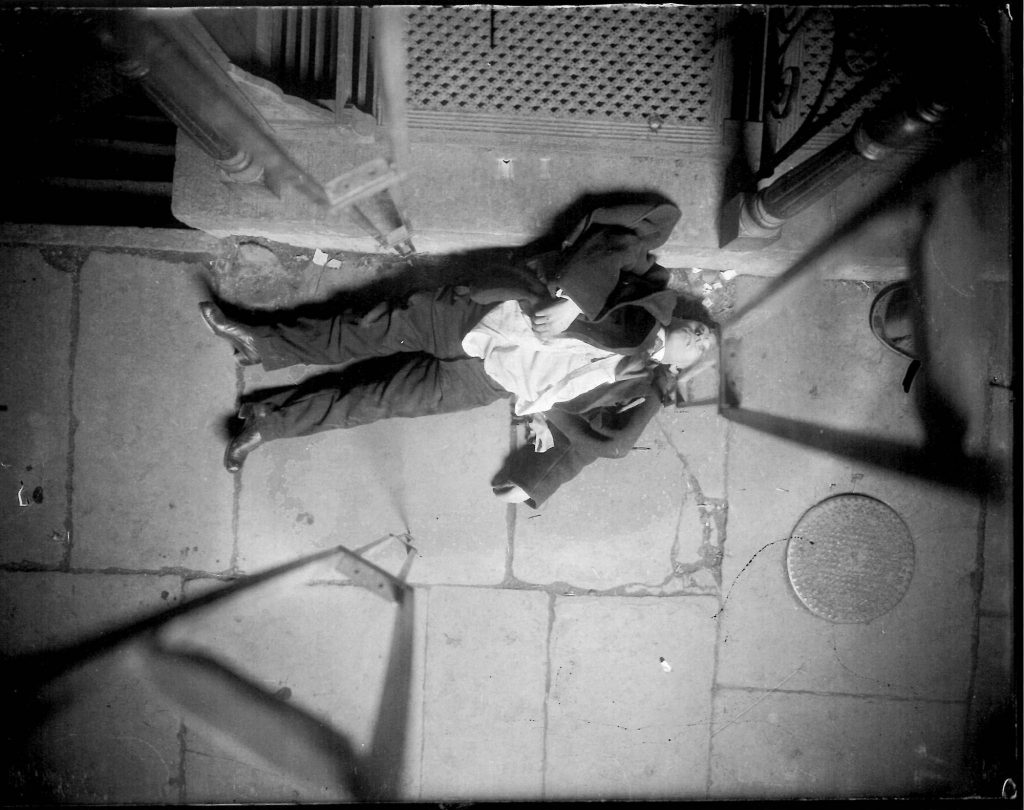
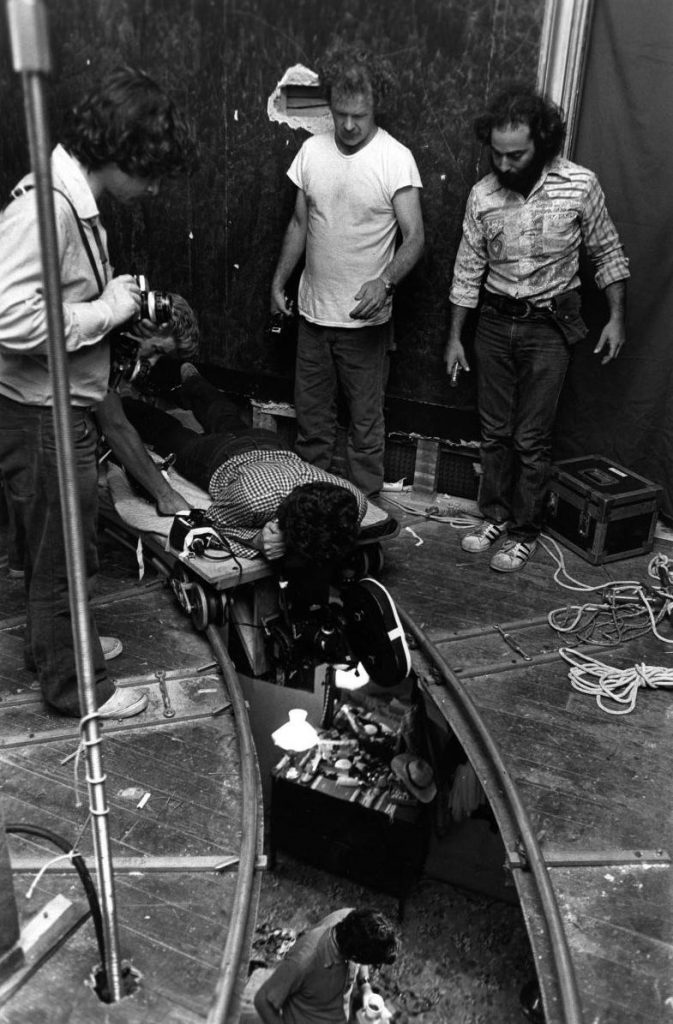
Just as the above mentioned aerial crime scene shot – a brilliantly conceived and executed long overhead pan – references infamous crime scene photos, so too does the poster image make what I believe to be a deliberate sly and subversive pop culture swicheroo.
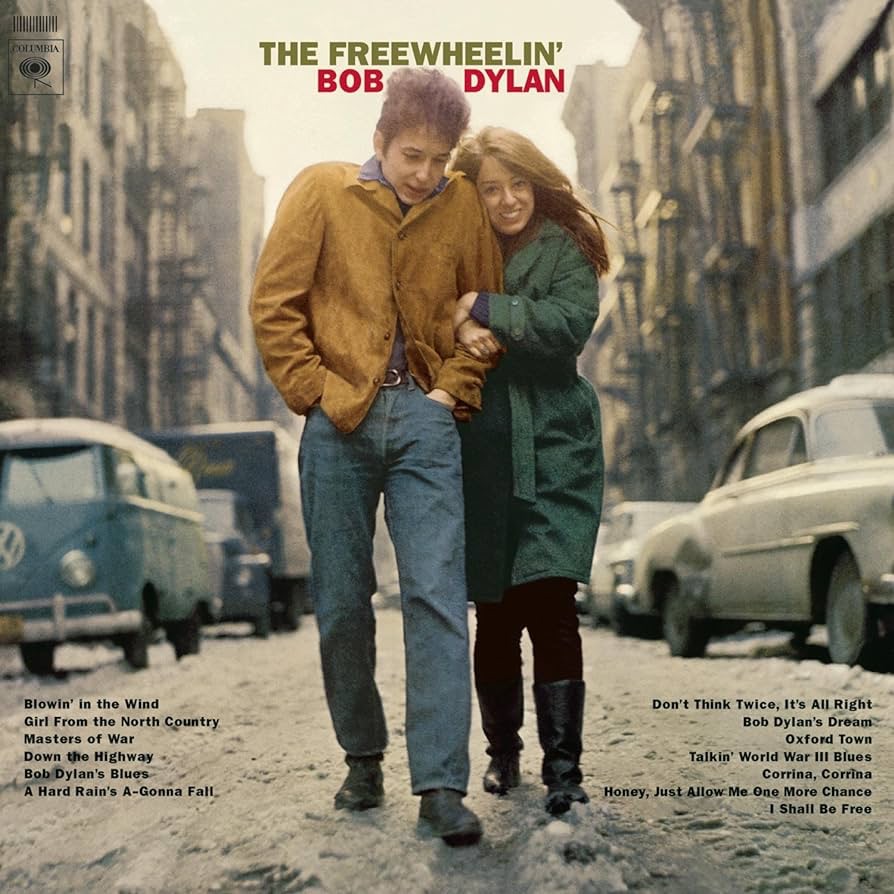
I’ve not seen anyone else mention this, but what about the above? In this image we get a cold, gritty urban NY vibe. But it’s basically positive. The Taxi Driver version substitutes the lonely alienated figure of Bickle, sans girl. Still amidst brownstone tenements and traffic. But now, instead of cars and fire escapes, it’s all sleazy fleshpots. Visual poetry, but with a sour taste.
What this shows, and especially if one contrasts Taxi Driver with Rolling Thunder, is how differently similar material can be made to feel, in the hand of different creative and directorial hands. Both are very dark movies. Thunder is ok, I guess. But Taxi Driver really is a great movie.
They’re both so grim I hesitate to actually recommend anyone watch either, to be honest. But they are worth seeing. Well, Taxi Driver is.
